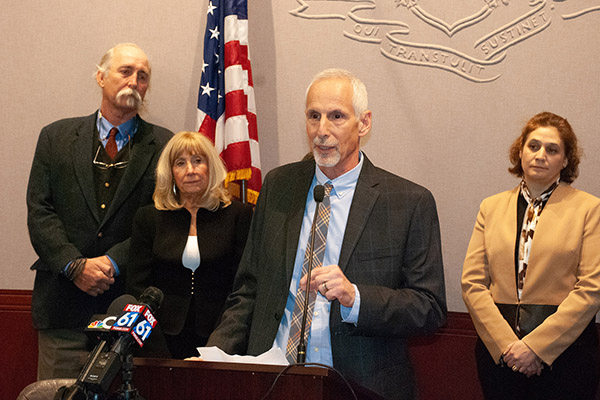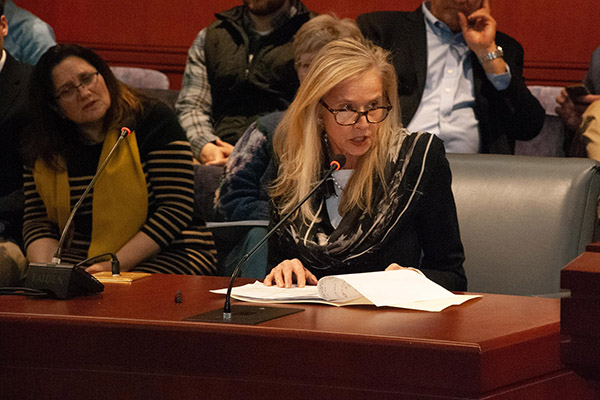Senators Anwar and Cassano Applaud Passage Of Crumbling Foundations Bills
HARTFORD, CT – On Tuesday March 19, the Insurance and Real Estate Committee passed Senate Bill 907 and House Bill 7179 – two key pieces of legislation that would address deteriorated concrete foundations caused by pyrrhotite – advancing them in the legislative process and bringing them closer to potentially becoming law. Senator Steve Cassano (D-Manchester) and Senator Saud Anwar (D-South Windsor) are members of the committee.
Senate Bill 907, “An Act Concerning the Residential Disclosure Report and Crumbling Concrete Foundations,” seeks to ensure that sellers disclose to purchasers any knowledge of the presence of pyrrhotite – a mineral that can cause structural damage to a building – located on the seller’s property. Additional information such as if there has been any testing or inspection done to determine the existence of pyrrhotite, any settling or deterioration problems caused by it, or any repairs done to remedy the damage, must be included in the “Residential Condition Report.”
House Bill 7179, “An Act Concerning Crumbling Concrete Foundations,” aims to establish a grant program to support and address the repairing and replacing of concrete foundations that have been impacted by pyrrhotite. The program would award $1 to $5 million per grant if the methods and technology proposed by the applicant would reduce repair costs by 70%. $8 million from the general fund for FY19 would be appropriated to the Department of Housing to fund the program.
Additionally, the bill provides support for condominium owners by expanding the definition of “residential building,” allowing for certain statutes to include single-family units within a condominium. Assistance from the Connecticut Foundation Solutions Indemnity Company (CFSIC) is also extended to condominium owners in residential buildings with more than 4 units.
“The impact that this damage has on people’s homes and livelihood is irreversible,” said Senator Cassano. “Last year the legislature took great strides in addressing this issue but there is still more to be done. We have to make sure that people are taken care of and that the state is doing its part to lift people up and assist in the repair and replacement of these deficient structures.”
In 2017, the bipartisan budget approved $100 million in bonding for grants to homes affected by pyrrhotite. It also created the CFSIC which will oversee and administer the grant program.
Last session, the legislature passed House Bill 5209, “An Act Imposing a Surcharge on Certain Insurance Policies and Establishing the Healthy Homes Fund,” which put a $12 surcharge on a homeowner’s insurance policy, beginning earlier this year on January 1, 2019. 85% of the funds generated goes to the Connecticut Foundation Solutions Indemnity Company and is used to fix homes that are crumbling. $10.2 million will be raised every year for 11 years through the surcharge. The remaining 15% of the funds will be used to address lead abatement in homes and $1 million of that 15% will go towards repairing homes in New Haven and Woodbridge that are sinking.
“The epidemic of crumbling foundations has harmed far too many homeowners and families in Connecticut,” said Senator Anwar. “I am thankful to be a member of the Insurance and Real Estate Committee and to have an opportunity to give my support to this legislation. By putting steps in place to bring relief to those affected, we move forward toward a solution that can help thousands.”
The bill now awaits a vote by the Senate.


